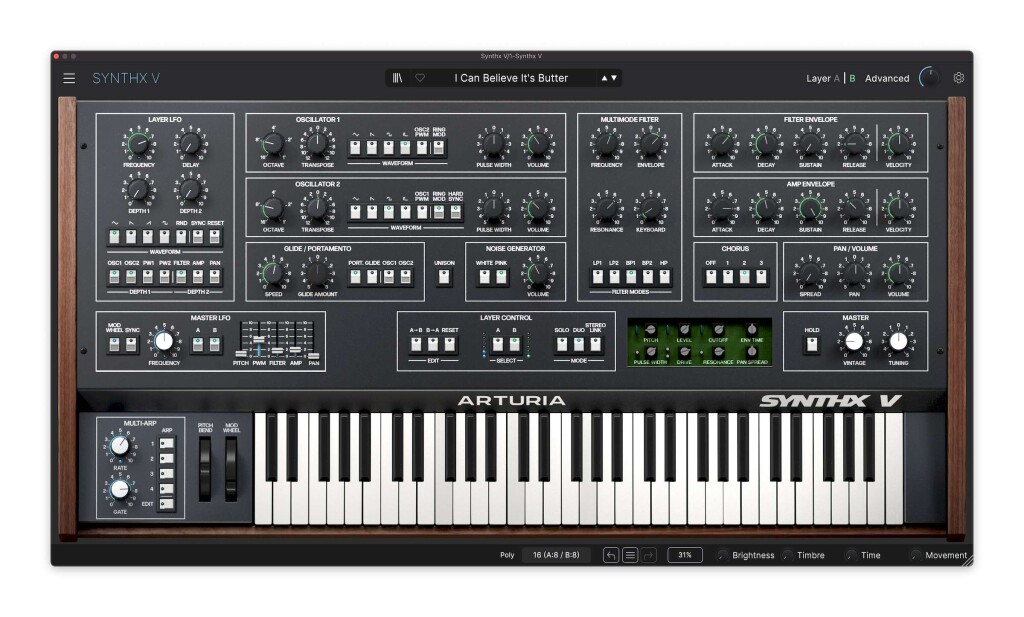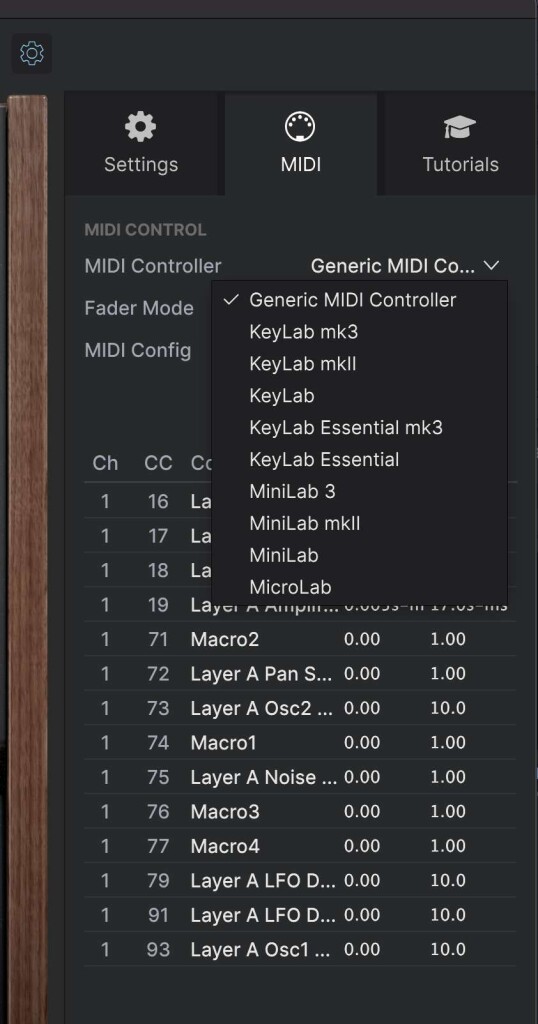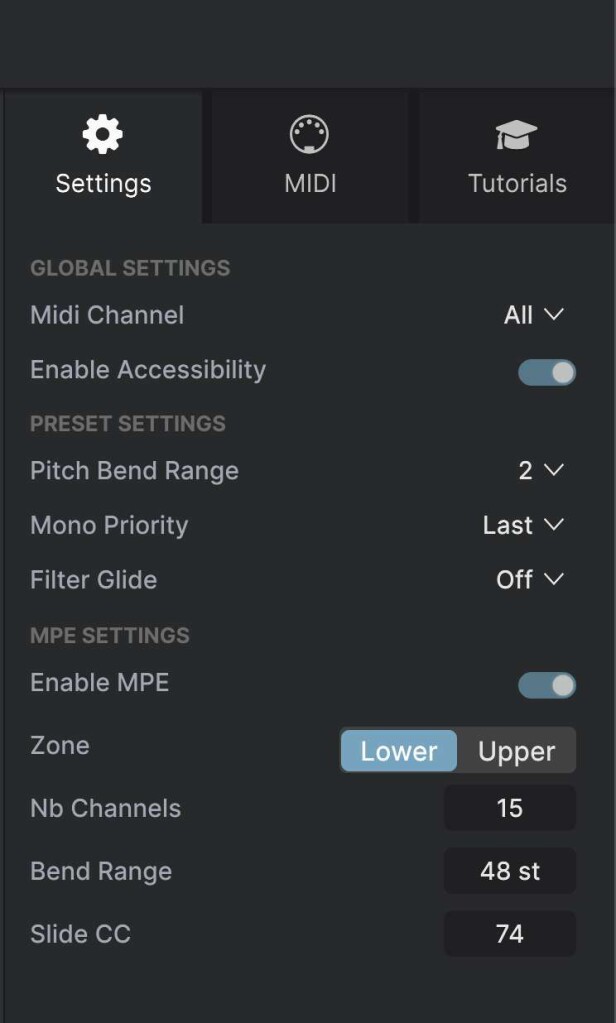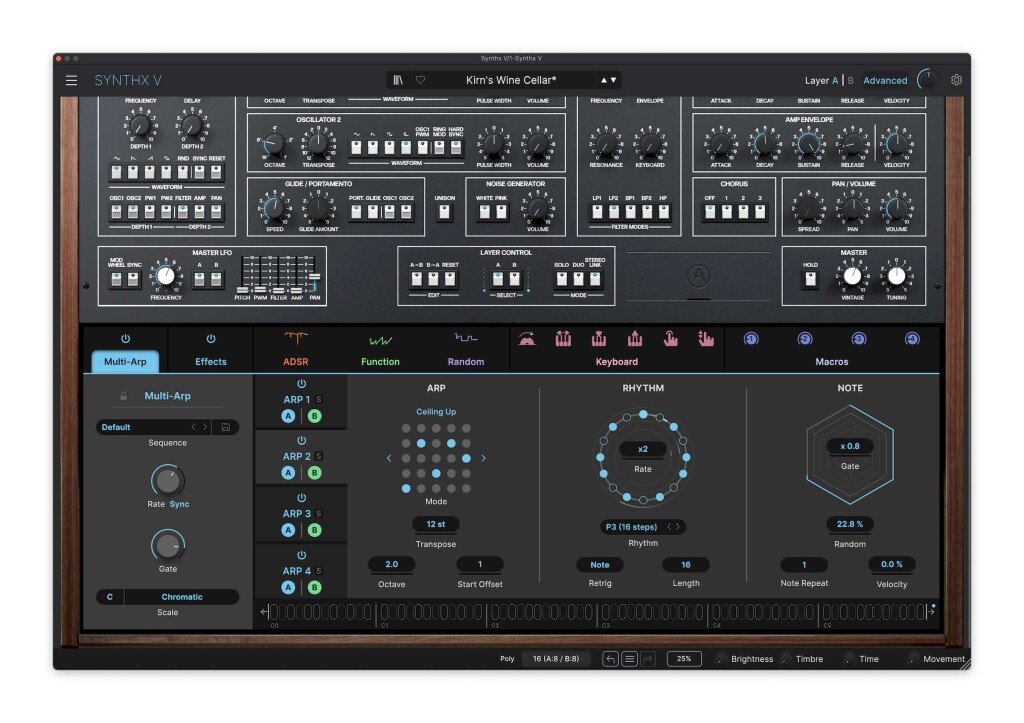SynthX V from Arturia may be the easiest way to bring the goodness of the rare Elka Synthex to your computer, with superb sound and push-button ease for cross-modulation and layering. And then you add the Multi-Arpeggiator to the mix…
It’s the final hours of Arturia’s intro pricing on the SynthX V – that’s through the 30th – so let’s be sure to squeeze this in.

The Elka Synthex might well be one of the best vintage instruments you probably haven’t played. Arturia’s recreation here at least feels right, rich with warmth and width. The Elka is just a wonderfully luxurious polysynth of the early 80s, with 2 oscillators per note and 8-voice oscillators. The oscillators are clean and stable DCOs (digitally controlled analog), and then you add a multimode filter. That was more special in the early 80s than it is now, but what holds up on the Elka is how easily its interface lets you get at modulation, cross modulation (including pulse width and ring mod), and the various layers.
This is really an Italian sports coupe of a polysynth, luscious and flexible. And it goes from buttery pads to crisp plucks and bass parts in a heartbeat.
I do mean buttery – and adding Arturia’s distortion and other effects can make it thicker, with some tweaks and extras that aren’t available in other recreations:
While the synth was rare, the sound wasn’t – Jean-Michelle Jarre, Martin Gore, and Nick Rhodes were all heavy users. So, it’s a great addition to Arturia’s stable of synths. Arturia gives it the usual treatment – onscreen tutorials, preset management, and additional effects are easy to find and familiar from the rest of the range, which is always welcome. The funny thing is, as with some other analog synths, the limitations of hardware design wind up translating perfectly to software form. It’s just ridiculously easy to voice “panoramic” spreads and layers in this thing. It’s not that I’m necessarily advocating skeuomorphic interfaces, but the simplicity of the hardware interface bests a lot of more “powerful” software configurations.
Arturia’s recreation sounds terrific and seems very Elka-like at least from my limited time on the real item and a familiarity with the sound. You also have a “vintage” knob to dial in simulated aging, plus additional “advanced” tweaks that are a bit more subtle. You can also drag and drop advanced modulation and whatnot, and though that sort of defeats some of the simplicity I just praised, it’s easy to access and should add to the plug-in’s longevity.
Arturia gives this the usual treatment as far as MIDI options, too, which both enables MPE integration and some handy mappings with Arturia’s own stable of controllers.



But the stroke of genius here is really the SynthX V’s addition of the multi-arpeggiator. This gives you four stacked arpeggiators with their own independent melodies and layers, for a take on the original four-track sequencer. This is what absolutely sells me on this design. And sure, you could get other arpeggiators like this, but the combination of the different arp modes – illustrated with punchcard style visualizations – with the particular sonic character of the Elka is magical. It’s an instant hypnotic wonder.
Here it is in action:
I’m sure some of you will wait for this to appear in V Collection, but when it does, it’ll be an obvious must-install. For those of you wanting to change your name to Jean-Michel and trip out now, it delivers. It’s the Italian holiday package you were dreaming of.
Of course, there is also Cherry Audio’s own Elka-X to consider, which also sounds pretty darn good. I feel bad I never got around to reviewing that one, especially as it has some great sound banks in it. The problem is, I’m a little too hooked on this multi-arp from Arturia, the addition of which feels like pairing the synth with a unique circular hardware sequencer. The Elka-X is competitively priced, though, so do check it out. (and Cherry has a 30-day demo, too.)
Johnny Morgan has done a fun dive into the history of the instrument and its designer Mario Maggi:
And the real Jean-Michel talks about the Synthex original and why it’s important.
Maestro Jarre also says that a plug-in can’t do what a hardware poly can and – I disagree (on sound, at least), but if you want to give me an Elka, I could be convinced? (To be fair, that video is nine years old; 2024’s added processing power means you can accomplish the modeling detail on a poly that might have been constrained to a monosynth in the past.)
Elka is still an active name, and I’d love to see more from them. For now, it appears the name is licensed to this one plug-in modeling the Panther organ, but maybe someone else knows more about what’s up at Elka. And there’s a lot of reason to enjoy this and not just things like the Jupiter.
I thought this might be skippable, but – it’s not. Whichever Elka emulation you get, it’s very, very nice to have one around.
Promo pricing seems exclusively available from Arturia, so go check what they’re offering based on your account.